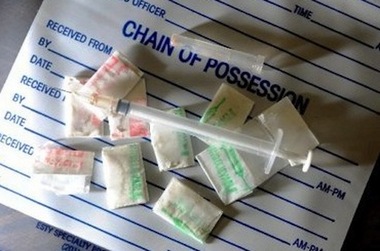Congratulations fellow New Jerseyians! According to a new report (Prescription Drug Abuse: Strategies to Stop the Epidemic), we have the 11th lowest drug overdose mortality rate in the entire United States. Furthermore, we show a promising 70% when graded on statewide strategies to eliminate prescription drug abuse all together. While there is no medal for 11th place, there is cause for some happiness. These stats show that we are on the correct path when it comes to prescription drug abuse. But there is still work to be done.
The aforementioned statewide strategies to eliminate drug abuse as outlined in the report are a list of 10 basic components that each state should be implementing. New Jersey offers 7 of them. The complete list of indicators can be found at the end of this post.

Image credit: nj.com
This might seem like a cause for celebration, but consider this for a moment. New Jersey has the 11th lowest drug overdose mortality rate but yet, from 2010 to 2011, the number of 18-25 year olds checking into treatment centers for opioid abuse jumped 12%. In 2012, Hunterdon County recorded two overdose deaths, but as of June 2013, they had already matched that number. Similarly, Ocean County recorded a staggering 53 deaths related to drug overdose in 2012. In June 2013, Ocean County had already recorded 52. Those are the frightening numbers for the state with 11th lowest drug overdose mortality rate. Imagine the numbers for the 12th (Illinois), the 20th (Maryland & Massachusetts), or even the 50th (West Virginia).
The fact is that prescription drug abuse remains a growing and frightening epidemic across this country. The 10 state sponsored indicators can do a lot of good to curb the issue, but the real prevention always begins at home. Parents need to be more aware of what is going on in their medicine cabinets. They need to be more willing to accept that their kids or their friends might be tempted to abuse these drugs. They need to be more proactive in getting rid of their unused, expired, or unwanted medications.
Fortunately, we can help you there.
The American Medicine Chest Challenge, a nationwide public health and safety campaign that started right here in New Jersey, collaborates with thousands of community leaders and police departments throughout the country in developing strategies to inform parents on steps they can to help protect their homes from prescription drug abuse. A very important part of this campaign is to educate the public on how to properly dispose of old medications so they won’t end up on the streets or worse, being abused by your kids and their friends. The American Medicine Chest Challenge is making its way across the country so that hopefully, in the end, the entire country will be tied for 1st place in drug overdose mortality rates – with 0.
For more information regarding the American Medicine Chest Challenge or how to find a location to safely dispose of medicine in your community, please visit www.americanmedicinechest.com.
|
No. |
Indicator |
Number of States Receiving Points |
|
|
A "Y" means the state received a point for that indicator |
|||
|
1 |
Existence of Prescription Drug Monitoring Program (PDMP): Has an active program |
Y |
49 |
|
2 |
PDMP: Requires mandatory utilization by prescribers |
16 |
|
|
3 |
Doctor Shopping Laws: Has a law specifying that patients are prohibited from withholding information about prior prescriptions from their healthcare provider |
Y |
50 and Washington, D.C. |
|
4 |
Support for Substance Abuse Treatment Services: Participating in Medicaid Expansion, which helps expand coverage of substance abuse services and treatment |
Y |
24 and Washington, D.C. |
|
5 |
Prescriber Education Required or Recommended |
22 |
|
|
6 |
Good Samaritan Laws: Has a law to provide a degree of immunity or mitigation of sentencing for individuals seeking to help themselves or others experiencing an overdose |
Y |
17 and Washington, D.C. |
|
7 |
Rescue Drug Laws: Has a law to expand access to, and use of naloxone, a prescription drug that can help counteract an overdose, by laypeople |
Y |
17 and Washington, D.C. |
|
8 |
Physical Exam Requirement: Has a law requiring healthcare providers to physically examine patients or have a bona fide patient-physician relationship before prescribing a controlled substance |
Y |
44 and Washington, D.C. |
|
9 |
ID Requirement: Has a law requiring or permitting a pharmacist to require an ID prior to dispensing a controlled substance |
32 |
|
|
10 |
Lock-In Programs: Has a pharmacy lock-in program under the state's Medicaid plan where individuals suspected of misusing controlled substances must use a single prescriber and pharmacy |
Y |
46 and Washington, D.C. |
|
Total |
Seven |
||